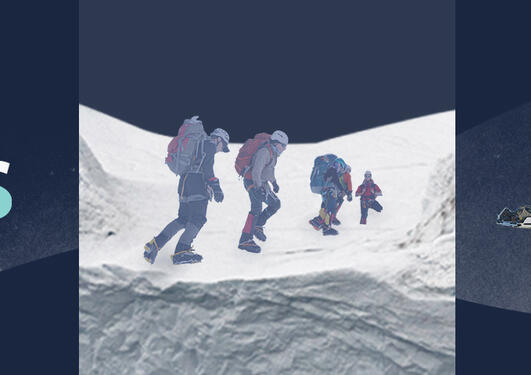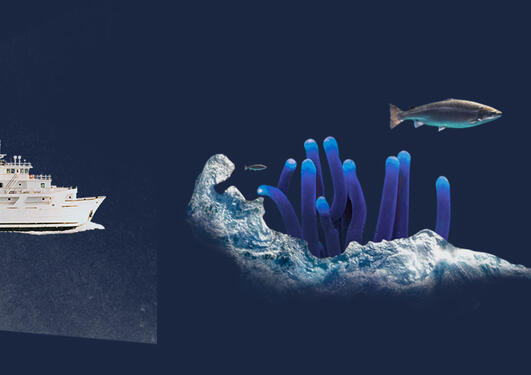Research possibilities for the MSCA SEAS postdoctoral research fellow in marine optics
The information on this page is a supplement to the complete advertisement of the position in the recruitment-portal Jobbnorge. The full advertisement of this position in Jobbnorge will be available after august 1, and linked from this webpage. Call deadline is October 31, 2022.
Main content
Key information
One position | MSCA SEAS postdoctoral research fellow at Department of Physics and Technology |
Jobbnorge title | MSCA SEAS postdoctoral research fellow in marine optics |
Topical frame | Development and use of instrumentation for monitoring of light scattering and absorption by marine particles |
Supervisor | Professor Børge Hamre |
Mobility | For an outgoing candidate (see mobility rules) |
Unit of employment | Department of Physics and Technology at University of Bergen |
Group affiliation | Optics research group and SFI Smart Ocean |
Thematic area and contact
This position is connected to marine optics with emphasis on development and use of instrumentation and numerical models for light scattering and absorption by marine particles, where the observations and modelling will be used to improve both environmental monitoring and optical communication in different coastal and fjord waters, including darkened waters due to increased land sediment runoff.
The position is open to an outgoing candidate, see mobility rules.
The successful candidate will be employed at the Department of Physics and Technology, included in the optics research group and work closely with colleagues in the Center of Research based innovation SFI Smart Ocean.
Information about the supervisor, research group and research possibilities for the fellow is available below. For further details about the research possibilities please contact Professor Børge Hamre.
Research possibilities and resources
The supervisor professor Børge Hamre is the leader of the optics group and has more than 20 years’ experience with radiative transfer and marine optics.
The research on marine optics ranges from in situ measurements of inherent optical properties, to radiative transfer modelling, and satellite remote sensing of the ocean. For example, a current project, EcoSens, led by the group, is investigating two separate annual events – both turning the fjord water green in the spring and summer. One is algae blooms; the other is glacier meltwater. Careful optical in situ measurements are used to feed models with relevant data in order to help satellite remote sensing algorithms discriminating between these two water types.
Measurements and modelling of inherent optical properties and radiative transfer are also highly relevant for underwater high-speed optical communication, which complements the SFI Smart Ocean mission on development of novel sensor- and communication systems to secure underwater ocean operations and fact-based ocean management, highly relevant for sustainable marine management. There are several possibilities for close cooperation with research-, industry- and public partners in the innovation centre, 18 partners in total. The Centre operates in the period 2020 (December) to 2028.
Available research infrastructure includes marine optical laboratories equipped with pulsed lasers, broad-band lamps, spectrometers, and other general optical equipment, as well as an extensive amount optical instruments to be used in the ocean, such as LISST-VSF, LISST-200x, ACS, Ramses radiometers, CTD, water collector and filtration units. For SFI Smart Ocean, there are available different test and pilot ocean/coastal demonstrators where underwater communication systems will be tested.
See the full advertisement in Jobbnorge
The full advertisement in Jobbnorge will be available from august 1, 2022, until call deadline October 31.
Important general information
Please be aware
- That until August 1st 2022 (official call opening), the information on this page must not be considered as final, as adjustments may be done! There might also be minor adjustments in the Guide for applicants and the templates needed for applying.
- That the application process is time-demanding and requires a close dialogue with name-given available faculty supervisor or contact who, close to the deadline, must sign a supervisor match declaration if an application is to be eligible.
- That some fields of research, especially within sensitive technology areas, might be enforced by Norwegian and international regulations regarding Control of the Export of Strategic Goods, Services and Technology. Candidates who by assessment of the application and attachment are seen to conflict with the criteria in these regulations might be prohibited from recruitment to UiB.

